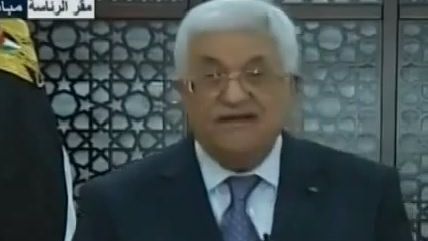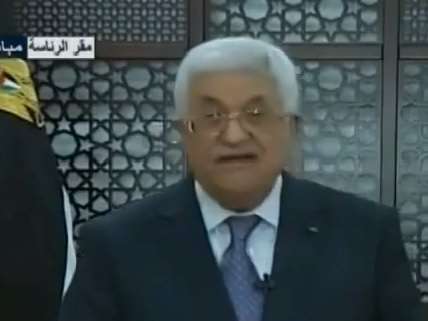Egypt Mediates Israel-Hamas Truce, Conducts Air Strikes in Libya: U.S. Disengagement Doesn't Mean Chaos


Israel and Hamas have reportedly accepted a long-term truce mediated by the Egpytian government that is mostly the same as a deal offered in the first week of fighting that Israel accepted but Hamas declined. Nevertheless, this time Hamas declared the truce a "victory." The deal will extend the distance from the coast Palestinian fishermen can operate it and will ease restrictions on trade and travel at Gaza's Israel-controlled border checkpoints. Hamas also wanted an airport and seaport in Gaza while Israel wanted Hamas to demilitarize. These and other issues will be revisited if the truce can last through September.
The truce is no victory for Hamas or the Israeli government, but if it holds it will be a victory for Israelis and Palestinians because it will bring a respite from rocket launches and retaliatory military strikes. It's also a victory for Egypt, which mediated negotiations between two sides that as a matter of policy don't talk to each other.
While Secretary of State John Kerry said the U.S. "strongly supported" the truce he also said he understood it was an "opportunity, not a certainty," which is certainly true. In the beginning of the fighting, Kerry was heavily involved in trying to get Israel and Hamas to agree to a truce but toward the end even the Israeli left had enough of him. President Obama defended Kerry, calling criticism of his attempts to negotiate a truce unfair. "He has been persistent. He has worked very hard," the president said. Reserving judgment on Kerry's skills as a negotiator, his attempt to negotiate a truce was doomed from the start. The U.S. plays too active a role, yet is not vested enough in the situation in Israel, to have acted as an effective negotiator.
Egypt, with which the Gaza strip also shares a tightly controlled border, which sends aid to Gaza, and which has a 35 year old peace deal with Israel, was far better positioned to negotiate a truce than the U.S. America's participation in negotiations may have also made them harder to succeed by drawing so much public and press attention to the process. In those conditions, Israeli and Hamas negotiators might have been more interested in not appearing weak in the court of public opinion.
Even Egypt's Muslim Brotherhood president (Hamas is also a part of the broader Muslim Brotherhood movement) Mohammed Morsi understood the role Egypt could play in getting Hamas to agree in a truce, in one of the previous military campaigns over Gaza in 2011. Egypt's ability and willingness to participate constructively in matters of regional security illustrates some of the benefits of U.S. non-interventionism. Countries like Egypt will only step up to keep their regions stable if they are weaned off the idea the U.S. is responsible for stability everywhere.
In that vein, Egypt, along with the United Arab Emirates, also recently conducted air strikes against radical Islamist militants making gains in Libya. That country has been sliding into instability since the West's hit-and-run intervention in 2011 that helped an assortment of rebels overthrow the government of Col. Qaddafi, leaving that government's massive weapons stockpiles for the taking of all kinds of miltiants, from Nigeria to Syria. Despite the Obama administration's contribution to this chaos, the U.S. government appeared to lament Egypt's "intervention" in Libya as an "escalation" of the turmoil, according to USA Today. Yet Egypt is far more staked in a stable Libya than the U.S. is, and their willingness to step up there too is more evidence that U.S. non-intervention can spur regional powers to take more responsibilities and not, as interventionists argue, create more chaos. In fact, that's what interventions tend to do.


Show Comments (7)